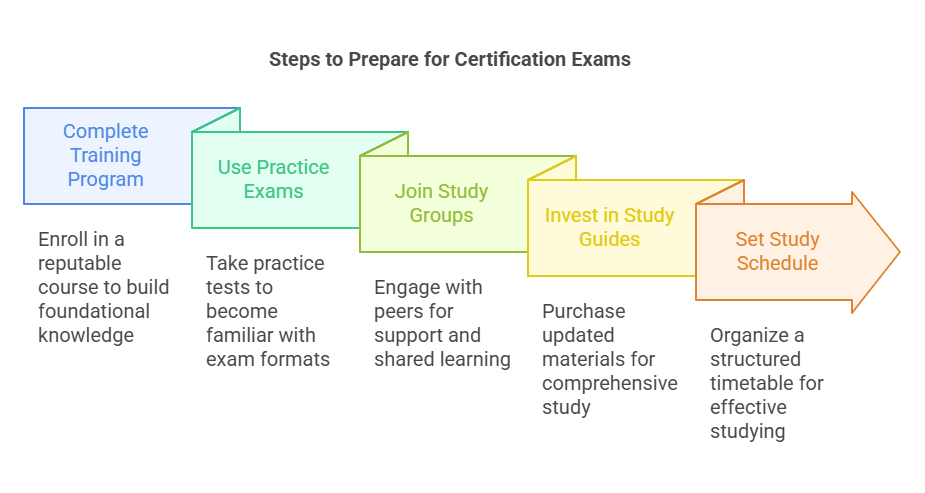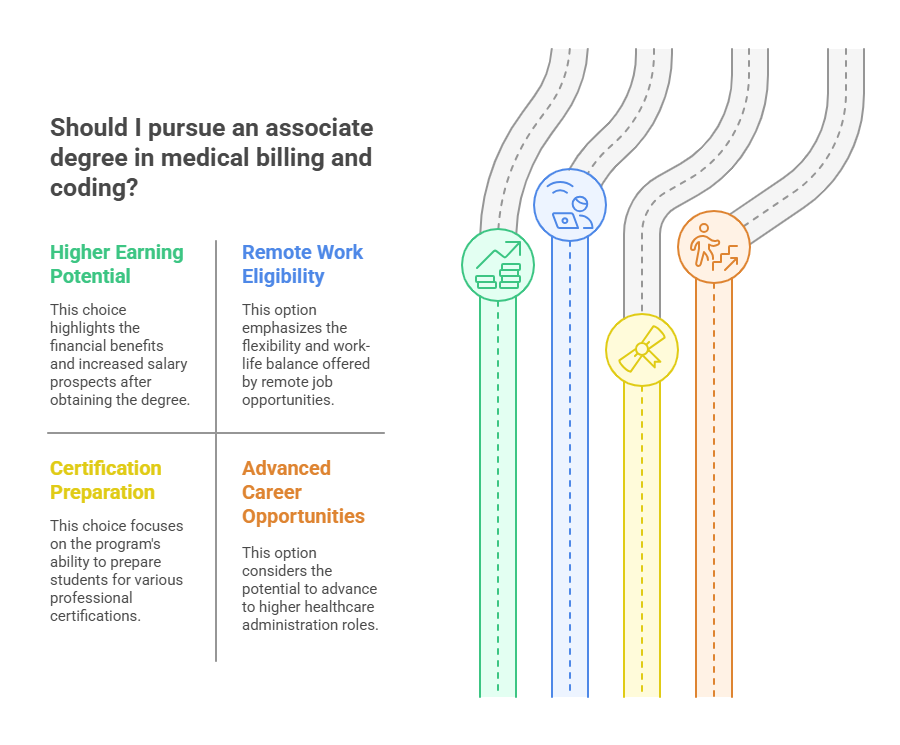Top Medical Billing and Coding Certification NJ: Boost Your Career Today
Are you considering a career in healthcare administration through medical billing and coding in New Jersey? Obtaining a medical billing and coding certification in NJ is one of the best steps you can take to boost your job prospects and increase your earning potential. Whether you're just starting or looking to advance your career, certification is your gateway to a stable and growing profession in the healthcare sector.
In this guide, you'll discover the benefits of certification, available programs in NJ, online learning options, and what to expect from the certification process in 2025.
Why Certification Matters in Medical Billing and Coding
Medical billing and coding certifications enhance your professional credibility and validate your expertise in the field. As of 2025, the demand for skilled billing and coding professionals in New Jersey continues to grow, driven by the expansion of healthcare services and a focus on accurate medical documentation and reimbursement.
Certifications like CPC (Certified Professional Coder) and CCS (Certified Coding Specialist) are essential for landing competitive roles in hospitals, outpatient clinics, and private practices. Employers consistently favor certified professionals due to their proficiency in navigating insurance claims, coding standards, and patient record management.
Overview of Medical Billing and Coding Certification in NJ
New Jersey is one of the top states for medical billing and coding professionals in terms of both opportunity and salary. The certification process typically involves completing a formal training program, gaining practical experience, and passing a recognized exam such as those offered by AAPC or AHIMA.
Many certification programs in NJ provide hands-on training with medical billing software, helping you build confidence and technical proficiency. These programs often cover essential topics such as medical terminology, anatomy, ICD-10, CPT, and HCPCS coding systems.
Online Medical Billing and Coding Programs in NJ
In 2025, online education continues to be a practical and popular option. Institutions like Brookdale Community College offer hybrid medical billing and coding programs that combine remote learning with in-person sessions. Brookdale’s 15-week program includes 84 hours of instruction and provides students with valuable resources such as:
AAPC CPB exam voucher
One-year AAPC membership
Real-time instruction via Zoom
Online courses allow for flexible learning schedules and are ideal for working professionals. These programs often include interactive virtual labs and access to simulation software for practical training.
Key Certifications for Medical Billing and Coding Professionals
Selecting the right certification is crucial, as each one aligns with different career goals:
Certified Professional Coder (CPC) – Best for outpatient settings
Certified Coding Specialist (CCS) – Suitable for inpatient environments
Certified Coding Associate (CCA) – Entry-level certification by AHIMA
Certified Billing and Coding Specialist (CBCS) – Offered by NHA
Certified Medical Coder (CMC) – Includes a written (non-multiple choice) exam and requires one year of experience
In 2025, the emphasis is also on continued education, with professionals expected to stay up to date with coding changes, billing regulations, and software updates.
How to Prepare for Certification Exams
To excel in certification exams, students should:
Complete a reputable training program
Use practice exams to familiarize themselves with the format
Join online forums or study groups for peer support
Invest in updated study guides
Set a structured study schedule
These steps will enhance your understanding and boost your confidence during the exam.
Understanding Medical Terminology and Coding Systems
Medical billing and coding revolve around standardized coding systems like:
ICD-10-CM: Diagnosis codes
ICD-10-PCS: Inpatient procedure codes
CPT (Current Procedural Terminology): Outpatient procedures
HCPCS Level I & II: Supplementary codes for services, equipment, and procedures
Proficiency in these coding systems is essential for accurate billing and claims processing. As healthcare continues to digitize in 2025, coders must remain proficient in electronic health record (EHR) systems.
Career Outlook in New Jersey (Updated 2025)
As of 2025, the career outlook for medical billing and coding specialists in NJ remains very promising. The Bureau of Labor Statistics projects continued job growth due to the expansion of the healthcare industry. In fact:
Average annual salary: $67,130
Average hourly wage: $32.38
New York-Newark-Jersey City metro area has the highest employment for this profession nationwide
Certified coders with experience and advanced credentials often earn upwards of $70,000+ annually.
Associate Degrees in Medical Billing and Coding
Pursuing an associate degree in medical billing and coding is a smart move if you're seeking a comprehensive education and a quick entry into the field. These programs typically cost between $4,000 and $10,000 and can be completed within 12–18 months.
Benefits include:
Higher earning potential
Eligibility for remote work
Preparation for multiple certifications
A stepping stone to advanced healthcare admin roles
Roles and Responsibilities of Medical Coders and Billers
Medical coders translate diagnoses and procedures into universal codes, ensuring healthcare providers are reimbursed correctly. They also update patient records and work with insurance companies to resolve billing discrepancies.
Billers handle the submission of claims and follow-ups on unpaid invoices. Their collaboration is crucial for maintaining the financial health of healthcare organizations.
How to Choose the Right Program
When choosing a certification program, consider:
Online vs. on-campus learning preferences
Duration and intensity of the program
Availability of certification exam preparation
Cost and financial aid options
Reputation of the institution
Smaller class sizes and hybrid models (combining in-person and online) are gaining popularity for their effectiveness in 2025.
Financial Aid and Scholarships
Affording education is easier thanks to:
FAFSA eligibility for federal aid (Pell Grants, Stafford Loans)
Employer-sponsored tuition reimbursement programs
Scholarships like the AHIMA Merit Scholarship and NJHIMA Scholarship
Local grants and installment payment plans offered by colleges
Scholarship applicants typically need strong GPAs and a compelling personal statement or essay.
Summary
A career in medical billing and coding in NJ is both stable and financially rewarding. With flexible program formats, nationally recognized certifications, and robust financial aid options, now is the perfect time to take the leap. By earning your certification, you’ll join a growing field that plays a crucial role in the healthcare system.
6 Lesser-Known Facts About Medical Billing and Coding
Coders can work from anywhere – Many certified coders enjoy fully remote jobs, even from different states or countries.
🔗 AAPC: Medical Coding Jobs from HomeDual certifications are highly valuable – Holding both CPC and CCS can double your job opportunities.
🔗 AAPC: Benefits of Multiple CertificationsAI is reshaping the field – Tools like computer-assisted coding (CAC) software are increasingly integrated into hospital systems.
🔗 AHIMA: CAC and the Future of Medical CodingCoders often specialize – Fields like oncology or cardiology coding offer higher pay due to complexity.
🔗 AAPC: Specialty Medical CodingCEUs are mandatory – Most certifications require continuing education units to maintain active status.
🔗 AAPC: CEU RequirementsNetworking matters – Joining organizations like AAPC or AHIMA can provide job leads, study resources, and mentorship.
🔗 AHIMA: Membership Benefits
Frequently Asked Questions (FAQs)
-
The most recognized certifications include CPC, CCS, CCA, CBCS, and CMC. Each serves a different role in the healthcare system.
-
Yes. Many colleges, including Brookdale Community College, offer online or hybrid certification programs with flexible schedules.
-
Absolutely. Students can apply for federal aid, scholarships, and employer reimbursement programs to cover costs.
-
The job market remains strong in 2025, especially in the NY-NJ metro area, with average salaries around $67,000 and projected job growth.
-
No. While an associate degree helps, you can also get certified through a non-degree program. However, degrees may offer better job prospects and pay.





